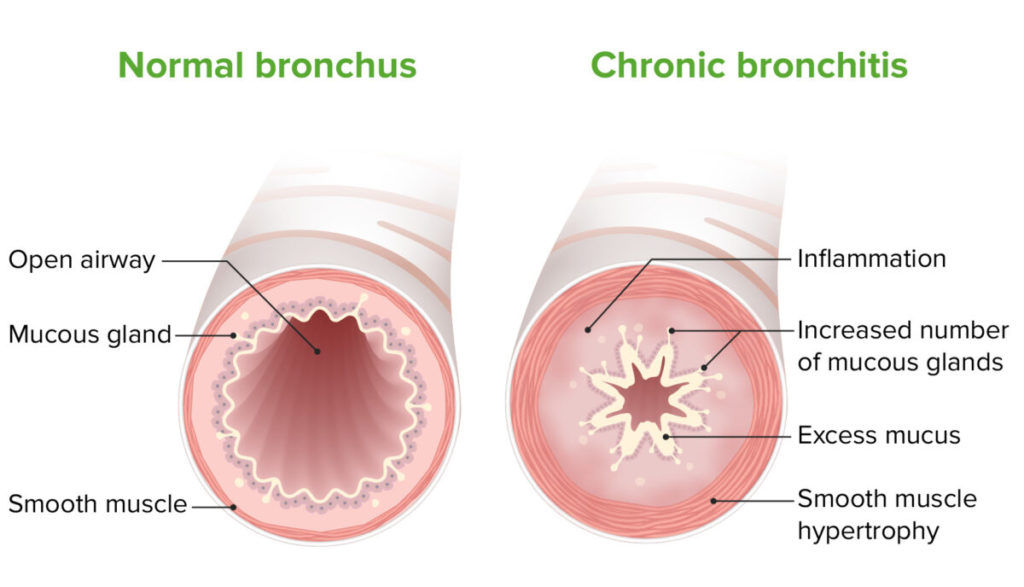Treatment of Chronic Bronchitis with custom-made Homeopathy medicines for bronchitis can help you get cured. The treatment protocol has been developed after exhaustive in-house research. Our clinics consult for more than 8000 patients with Chronic Bronchitis globally, every year. You too can be benefitted from our expertise in the treatment of Chronic Bronchitis.
Why Welling Homeopathy Medicines for Chronic Bronchitis Treatment?
- Our custom-made Homeopathy medicines for Chronic Bronchitis has helped 12,230 patients since the start of the clinic,
- The Homeopathy treatment for Chronic Bronchitis has cured the most widespread painful Chronic Bronchitis,
- The treatment is non-steroidal, with no creams and no locations. Just natural Homeopathy medicines custom-made for you for faster recovery,
- Usually, we see a cure in 12-18 months, rarely requiring 24 months.
- The fastest and the safest way to get cured of Chronic Bronchitis symptoms permanently.
Call +91 9999064336 to book an appointment or to consult and order online. Consult our specialists today for a detailed evaluation and to start your customized homeopathic medicines for chronic bronchitis.

What is Chronic Bronchitis?
Chronic bronchitis is bronchitis that lasts longer than 3 months. Chronic bronchitis is a long-term, respiratory illness. Those with chronic bronchitis have a daily mucus-producing cough that persists for at least 3 months a year, at least 2 years in a row.
Chronic bronchitis is a persistent, serious lung disease that requires ongoing medical care and can lead to gradual deterioration of the lungs. Many people with chronic bronchitis also develop another respiratory disease called emphysema.
Chronic bronchitis involves the restriction of airflow in the air passages that worsens over time. This causes increasing difficulty in breathing and more sputum (mucus) production in the lungs.
Chronic bronchitis is a form of chronic obstructive pulmonary disease (COPD).
Causes of Chronic Bronchitis
Smoking is the major cause of chronic bronchitis – smoking causes paralysis of cilia which are important to keep germs and irritants out of the lungs. If cilia are damaged mucus gets trapped in lungs. This causes the walls of the bronchial tubes to become irritated, swell, and narrow. The bronchial tubes also become less able to expand when the body needs more oxygen. Mucus stuck in the smaller passages causes stale air to be trapped instead of exhaled. This leads to difficulty breathing
Exposure to occupational or environmental irritants can cause chronic bronchitis. Irritants may include:
- Smoke
- Air pollution irritants, such as ozone and nitrogen dioxide
- Fumes from chemicals such as sulfur dioxide, hydrogen sulfide, bromine, strong acids, ammonia, some organic solvents, and chlorine
- Dusts, such as coal dust or grain dust
Chronic bronchitis can develop from repeated episodes of acute bronchitis or other repeated lung infections -the recurring cough from repeated episodes of acute bronchitis may damage the lining of the bronchial tubes, making it increasingly difficult to clear mucus from the lungs. The mucus then leads to further coughing and more scarring of the air passages in the lungs. Chronic bronchitis may develop over time because of this damage. Recurrent respiratory tract infections during infancy or early childhood can also lead to chronic bronchitis.
Symptoms of Chronic Bronchitis
The symptoms of chronic bronchitis are:
- Persistent cough producing yellow, white, or green phlegm (for at least three months of the year, and for more than two consecutive years).
- Sometimes wheezing, sometimes breathlessness.
- Shortness of breath aggravated by exertion or mild activity
- Frequent respiratory infections that worsen symptoms
- Wheezing
- Fatigue
- Ankle, foot, and leg swelling that affects both sides
- Headaches
Diagnosis of Chronic Bronchitis
- Investigation to diagnose chronic bronchitis include:
- Pulmonary function tests- This test involves a series of breathing maneuvers that measure the airflow and volume of air in your lungs. This allows your doctor to objectively assess the function of your lungs
- Arterial blood gas
- Chest x-ray-While chest x-rays may not show bronchitis until it is severe, the images may show enlarged lungs, irregular air pockets ( bullae) or a flattened diaphragm. A chest x-ray may also be used to determine if another condition may be causing symptoms similar to bronchitis.
- Pulse oximetry (oxygen saturation testing)
- Complete blood count (CBC)
- Exercise testing
- Chest CT scan-These images can identify emphysema better and at an earlier stage than a chest x-ray. They can also identify other changes of bronchitis such as enlarged arteries in the lungs. CT is sometimes used to measure the extent of emphysema within the lungs. It can also help determine if the symptoms are the result of another disease of the chest
- High Resolution Computed Tomography (HRCT)— This is a special type of CT scan that provides your doctor with high-resolution images of your lungs.
Treatment of Chronic Bronchitis
Treatment may include:
- Bronchodilator Medications— Inhaled as aerosol sprays or taken orally, bronchodilator medications may help to relieve symptoms of chronic bronchitis by relaxing and opening the air passages in the lungs.
- Steroids— inhaled as an aerosol spray, steroids can help relieve symptoms of chronic bronchitis. Over time, however, inhaled steroids can cause side effects, such as weakened bones, high blood pressure, diabetes and cataracts. It is important to discuss these side effects with your doctor before using steroids.
- Antibiotics— Antibiotics may be used to help fight respiratory infections common in people with chronic bronchitis.
- Oxygen Therapy— As a patient’s disease progresses, they may find it increasingly difficult to breathe on their own and may require supplemental oxygen.
- Surgery— Lung volume reduction surgery, during which small wedges of damaged lung tissue are removed, may be recommended for some patients with chronic bronchitis.
- Pulmonary Rehabilitation— An important part of chronic bronchitis treatment is pulmonary rehabilitation, which includes education, nutrition counseling, learning special breathing techniques, help with quitting smoking and starting an exercise regimen. Because people with chronic bronchitis are often physically limited, they may avoid any kind of physical activity. However, regular physical activity can actually improve a patient’s health and wellbeing
Complications of Chronic Bronchitis
- dyspnea, sometimes severe,
- respiratory failure,
- pneumonia,
- cor pulmonale (enlargement and weakness of right heart ventricle due to lung disease),
- pneumothorax (collection of air or gas in lung causing lung collapse),
- polycythemia (abnormally high concentration of red blood cells needed to carry oxygen),
- COPD ,
- emphysema,
- chronic advancement of the disease, and
- High mortality (death) rate
Homeopathy Treatment of Chronic Bronchitis
Specially formulated Homeopathy treatment for bronchitis has been proven to be immensely effective in relieving continuous cough, treating the recurrent cold and cough, improving your immunity and general health, reducing the severity & frequency in case of chronic bronchitis.
Homeopathy Medicines for Chronic Bronchitis
The most common Homeopathy medicines for chronic bronchitis prescribed by our specialist are
BELLADONNA
Belladonna suits cases of bronchitis with a violent fever, short, dry, continual, distressing cough, worse at night and on lying down, where the breathing is irregular and hurried, no expectoration, or, if present, it is apt to be blood streaked, fullness in chest without any pain, though children will cry when coughing, the skin is hot and inclined to moisture. There is a tendency to drowsiness, the patient does not sleep, but dozes in semiconscious manner and starts frequently.
PHOSPHOROUS
Especially suitable to sub-acute and lingering cases. There is a paroxysmal cough with pain under the sternum, suffocative pressure in the upper part of the chest with constriction of the larynx, hoarseness, mucous rales,bloody and mucous sputum or purulent, having a salty or sweetish taste; patient better after sleep. The respiration is embarrassed and the tendency is toward pneumonia
MERCURIUS
The sovereign remedy in inflammatory bronchial catarrh; there is roughness and soreness from the fauces down through the middle of the chest, a dry, raw concussive cough, which is very exhausting ;sputum watery, saliva-like, or yellow and muco-purulent. There is fever and alternation of hills and heat, desire for cold drinks, which aggravate the cough. and pasty sweat without relief. The expectoration may also be of bluish lumps, and the cough is especially troublesome towards morning, the tightness seems to be at the epigastrium.








